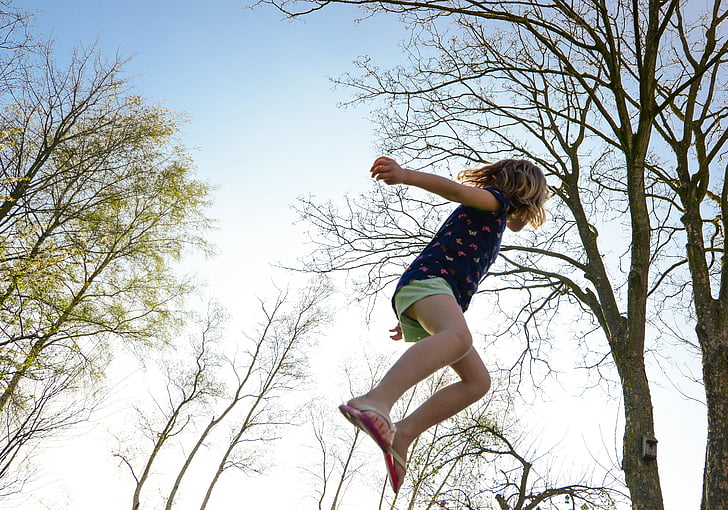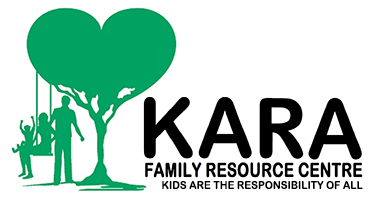
“Self-confidence is my four year old asking me to turn off the ceiling fan so he can show me how high he jumps” – Anonymous
If you subscribe to KARA’s newsletter, the most recent edition is all about growing children’s self‑esteem. This is an amazing addition to KARA’s new online portfolio but it’s also a chance for my family to see what we are doing correctly and what we can improve on! Read about it here.
According to Making Children Mind Without Losing Yours, there are three important points to consider when helping your child develop a healthy sense of self-esteem: acceptance, belonging, and competence. This got me thinking about the methods my family has used, how we have succeeded, and ways in which we can improve as parents. So I’ve done a little reflecting to see where we’ve excelled and areas where we still need work – as every personal and family journey is a work in progress!
Acceptance
It’s important for each child to know they are unique and valuable in their own personal way, but also to know that they are accepted for the person they are! Mistakes are simply just that – mistakes – and they are still loved and worthy of acceptance and respect.
This key message for parents really stood out to me as an area in which my family excels! My kids are quite fond of messy play, tardy chore time, and even dangerous climbing and acrobatic games. Whenever our little gaffers do something unique, even making mistakes as they go, the grown-ups in my family praise them and make them feel special for their unique gifts. I feel like it just comes naturally to us to say, “You’re my special guy,” “You always make the best Lego dragon,” and “Wow, that’s a cool new way to do that!”
With any little or big mistake the kids get up to, my husband and I always get down on our knees to be at the same eye level with our kids. We have always found this really gives them the respect they deserve and decreases any potential feelings of being ‘talked down to.’ We also use calm voices and explain why what they did was a mistake. “You can’t pull on the back of someone’s shirt because it could make them fall. That would hurt them and no one likes getting hurt.”
The coolest part is that we think these traits are projecting onto our children, increasing their ability to accept others for their awesomeness and even mistakes. We’ve often heard the two of them conversing on their own while playing, saying things like, “Great job, little brother, I like your sand castle,” and “That’s okay big brother, I’m not hurt.”
Of course, the little dreamy voice of a toddler telling his big bro his mistake was forgivable was simply heart-melting!
Belonging
Helping a child of any age learn that they matter to others, and have people that support them, is crucial to positive development. Knowing that they have a place that they fit in and that their needs and feelings are important and honoured by their family is imperative if they are to be healthy emotionally.
After reading about this key message, I thought back to a time when my youngest son, Polar Bear, and I had a disagreement. This story ties in with both belonging and acceptance, and was a beautiful moment I will never forget.
Polar Bear had taken a late nap in the car that evening, and, as a result, was having trouble sleeping that night. Any parent knows how frustrating it can be as you watch the minutes and hours pass by on the clock, dreading how you’re going to feel come morning. I admit I lost my cool and threw my own temper tantrum, obviously scaring him. Upon returning him to his own bed, I felt ashamed. He was now even worse off than he was before – and so was I. Instead of ignoring the moment, I owned it. I laid down beside him and told him that Mommy was sorry, that I shouldn’t have yelled, and that he didn’t deserve to be treated like that. By doing this, I felt that I showed him he matters to me, that I care about him, and that his feelings are important. His immediate reaction was to look straight at me and ask, “Mommy’s sorry?” Then he gave me a big smile and a hug.
Even though it was a little sad, it was a lovely moment that the two of us shared. I will certainly never forget that my child needs to know that his feelings matter to me, and that he was so good to forgive (and accept) me for my mistakes as well.
Competence
It is my family’s personal belief that each opportunity to increase a child’s skills should be undertaken with great care and enthusiasm! Helping a child understand that they have the abilities to take risks and learn new skills will help boost their confidence and allow them to try new things – whether it be making the most delicious imaginary tea or learning how to write the entire alphabet!
I know that each little one in my family has big dreams, and I only expect those dreams to grow – so I want to be the support they need to meet their personal goals. This means letting them know that they have unique talents, their contributions are valuable, and that they can be their own resource when it comes to problem solving! In later life, this competence helps us continue to try, knowing that success cannot be reached without a little perseverance.
One big event that has happened recently is that my Grizzly Bear has learned to ride his bike without training wheels. After two years of using a balance bike, he finally received a pedal bike for his 5th birthday. While he had mastered the balance required of bike riding, training wheels enabled him to focus on learning how to pedal. He’s a very sensitive child, and can get down on himself easily when things don’t work the way he thinks they should quickly enough, so this was a bit of a challenge for both us and him. Sometimes he would want to give up, to which we would encourage (but not force) him to keep trying. If he did decide that was enough for one day (or even one outing), that was fine. We knew to accept his boundaries, and while it’s important to always encourage your children to expand their horizons, it’s equally (if not more) important to respect their needs and be patient with their learning style. Often it would be only be a few hours later and we’d say we were going for a walk, and ask if he wanted to walk or try his bicycle again, and the answer was always to try the bicycle again. By keeping the experience as positive as we could on our end, despite his own reservations, he always wanted to try again. In no time (and two crashes later), he was excited to remove the training wheels. Once they were off, combining the two skills (pedaling and balancing) seemed to make him feel like he was back at square one, but our approach did not change – we kept encouraging him to meet his goal! He often asked if we could put his training wheels back on, but after asking if he was sure he didn’t want to just take a break, he’d soon be back at it. It also required a great deal of trust between us – but we’ve been building that relationship for 5 years!
Within a couple of weeks, he’d learned enough to ride his bike with confidence, and we learned a little more on how to develop competence.
Extras
If you feel like learning a little more about developing a child’s self-esteem, check out the KARA Newsletter linked at the top of this page. It has great info on the life-long learning positives of the self‑esteem boosting key messages. It also has a wide variety of strategies to try, books to read, and activities to partake in!
Also feel free to contact me for any more self-esteem boosting stories. I hope these ones have inspired you but I have plenty more if interested! All the best and take care!
